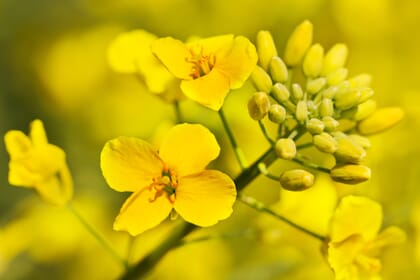The omega-3 canola oil, which is extracted from rape plants that have been genetically modified to produce the key fatty acid DHA, is produced by Nuseed in Australia. Analysis by NIFES found no DNA traces of genetically-modified rapeseed, giving hope that it might not be classed as a GM product.
Nofima is currently undertaking the trials on salmon in both freshwater and seawater facilities on land, in which increasing amounts of the canola oil were added to the feed. A parallel trial has been carried out on fry in warmer water in Australia, to test the omega-3 sources at different growth rates, to detect any effects that occur with rapid growth in early life.

The salmon given feed containing oil from the GM crop were analysed for growth, composition and health and had the same fillet omega-3 levels as salmon fed with fish oil. Gene expression analyses showed that effects depended on the amount of oil, not the type of oil.
“Thorough analyses of these results have not shown any differences in health and growth between fish fed the two oils,” says Bente Ruyter, project manager at Nofima.
The diet trials have also been performed on salmon growing from 0.5 to 1.2 kg in tanks on land in Sunndalsora. The fish were given feed with increasing levels of omega-3 canola, the results of which are currently being analysed.
Regulatory hurdles
“The results will be published in open journals,” says Ruyter. “Whether this oil is cleared for use in feed depends on government regulations. Then it is up to the industry to decide whether to use the new feed sources. Knowledge from this project will provide a basis for these decisions.”
The project is financed by the Norwegian Seafood Research Fund (FHF) and is in collaboration with NIFES and CSIRO.



